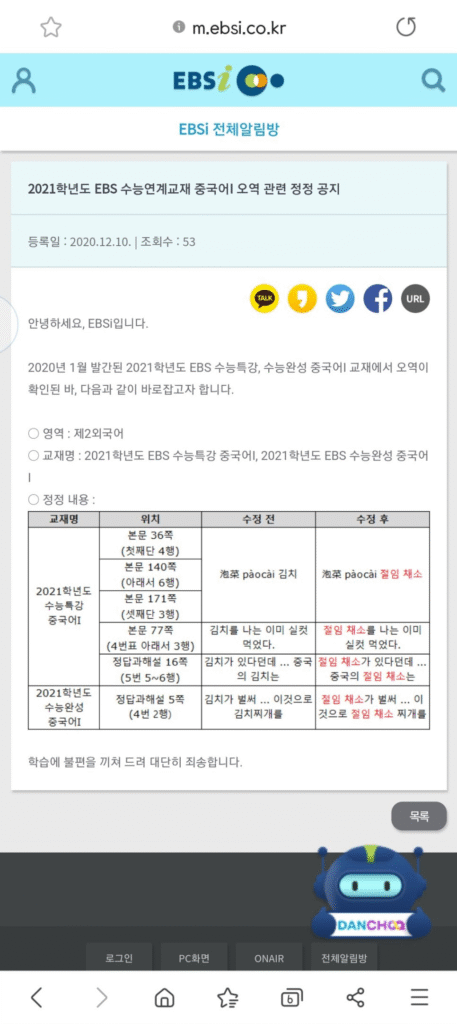<2020.12.11>

VANK announced that a mistranslation of Kimchi in the 2021 edition of EBS’s CSAT Chinese language textbook has been corrected just one day after a formal correction request was submitted.
On February 10, 2020, VANK discovered that the textbook translated “pàocài” (泡菜) as “Kimchi” in multiple locations, including page 35 (vocabulary for the character 泡), page 140 (cooking-related terms), and page 173 (vocabulary explanations). VANK immediately sent an official correction request to EBS and the Ministry of Education, pointing out the issue and urging action.
VANK emphasized that while “pàocài” refers to Chinese-style pickled vegetables, Kimchi is a traditional Korean fermented dish with distinct ingredients, fermentation methods, and cultural significance.
Given the current context in which China is falsely claiming Kimchi as its own, misrepresenting Kimchi as “pàocài” in a major national education resource like the EBS CSAT textbook could not only mislead students, but also be misused in international propaganda efforts.
VANK further requested that if the textbooks had already been distributed, EBS should inform teachers and students across the country of the mistranslation, and correct the information in associated online video lectures.
In response, EBS issued a formal apology via email to VANK, and also posted a public notice on its official website.
EBS confirmed the following correction:
Before Correction: 泡菜 pàocài – Kimchi
After Correction: 泡菜 pàocài – Pickled vegetables
EBS also noted:
“The 2021 CSAT textbook is no longer in use as the national exam has concluded and the textbook is being phased out.
We will ensure that this error is not repeated in the upcoming 2022 edition of the Chinese language textbook currently in development.”
— EBSi Official Announcement
This successful correction showcases the impact that civic action can have in defending Korea’s cultural heritage and ensuring accurate representation in educational resources.